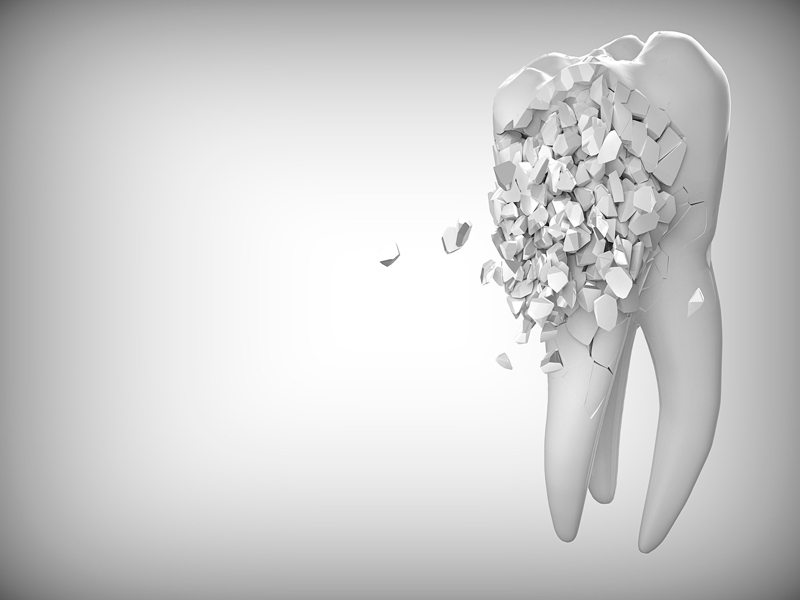What are dental fissures?
Dental fissures are small cracks that originate on the surface of the mouthparts.
This problem can happen to everyone but, it is true that depending on your age, you are more likely to suffer from a dental fissure. People who are more likely to have dental fissures in their mouth are people between the ages of 20 and 30, but especially people over the age of 50.
Types of dental fissures
We can see two types of dental fissures: internal and external:
- External fissures: these types of fissures do not cause pain as they only affect the enamel. They are considered that they cannot cause any really serious problems, but they should be treated with a seal to prevent bacteria or other infections from entering the part.
- Internal fissures: these can cause quite intense pain in the tooth, as they pass the surface layer of the piece. They can even affect dentin, leading to nerve damage. In the event of a nerve problem, an endodontic solution would be required to save the piece.
On the other hand, if we encounter the problem that the crack of the tooth reaches the gum, the extraction of the tooth will be required.
Why can dental fissures appear?
Dental fissures can occur for various reasons, but the main ones are the following:
- Chewing: any hard food such as ice can seriously affect our teeth. Also the high consumption of sweets can increase the possibility of appearance of dental fissures.
- Temperature: although it may seem silly, sudden temperature changes can be a key point. The rise and fall of temperature greatly affects our dental health.
- Bruxism: bruxism is usually the main cause of the appearance of dental fissures. It markedly wears the surface of the tooth, this leads to the piece gradually weakening. It should be added that the continuous pressure exerted can also lead to the appearance of dental fissures.
- Oral trauma: a blow to the mouth by accident can lead to the appearance of multiple dental fissures. This usually happens when some of our parts are in treatment, as it is weaker and dentin is dehydrated. The tooth is weaker than normal, so eating some hard food such as nougat, can lead us to a severe dental fissure.
What symptoms can I experience if I have a broken tooth?
Each dental fissure is different, so depending on how it is, we can experience one type or another of symptoms and ailments.
- Increased sensitivity to eating.
- Inflamed gums around the affected part.
- Feeling pain with sweet foods.
- Pain at sudden temperature changes.
How to diagnose dental fissures?
There are three options to diagnose dental fissures:
- Visual examination: with a wide range of magnifiers and probes, our trusted dentist will be able to see in which part the fissure is located and diagnose what type it is.
- Dental dye: with the application of this dye to our mouth, it will be easier to detect where the fissure is, since the dye will be introduced into the break and will be seen clearly.
- X-rays: x-rays will not show us the dental fissures we may have but, if they can guide us on our dental health and pulp health. The health of the pulp can be a clue to indicate that we have dental fissures.
Treat your dental fissures with Dentist Gross
If you want to remedy your dental fissures, do not hesitate to contact us so that you stop experiencing that pain so annoying that you do not enjoy your favorite food.
We are one of the best dentists in Malaga, we have a wide range of professionals as well as treatments that can help you solve your dental fissures as well as any other type of dental problem you have.
Ortodoncista especializada en el sistema de ortodoncia invisible, extensa trayectoria profesional y un gran número de pacientes satisfechos con los resultados obtenidos tras la finalización de su tratamiento.


